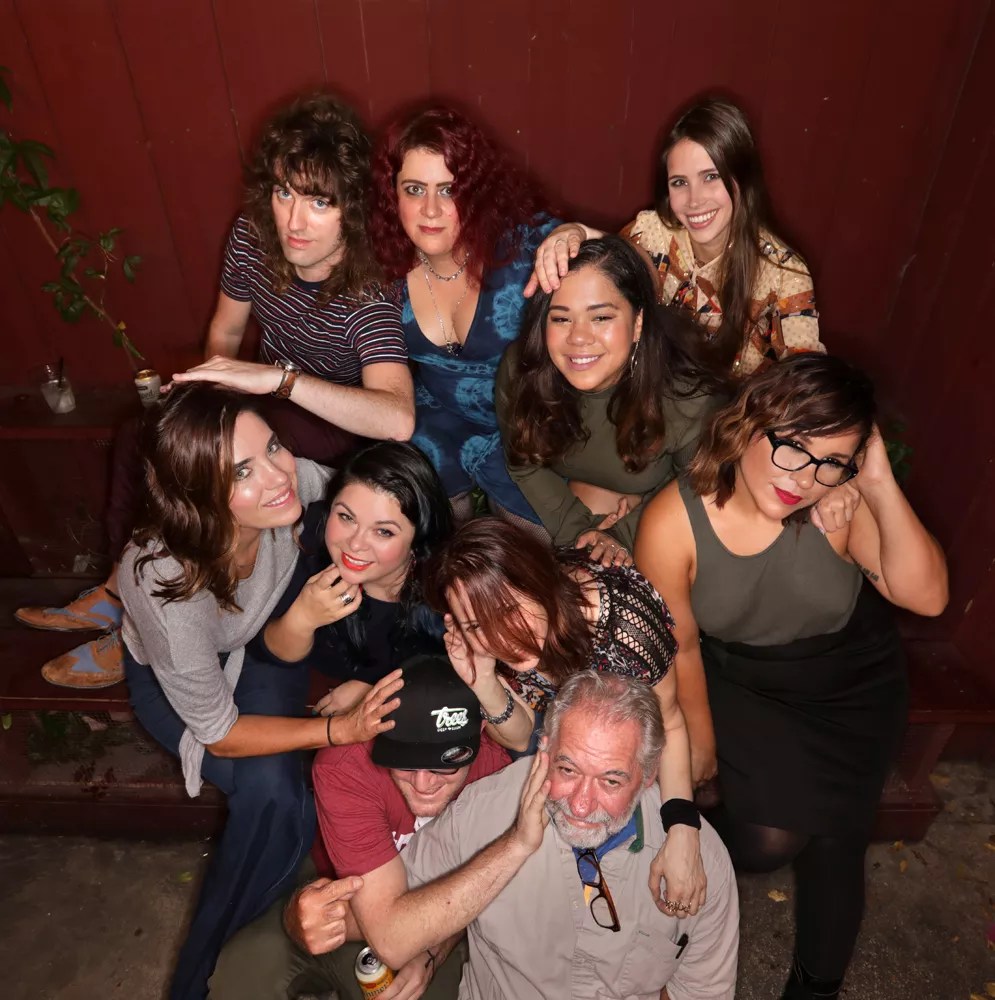
Jason Janik

Audio By Carbonatix
Sixteen Dallas music industry veterans are milling about on a Deep Ellum patio on an unseasonably warm evening in November. It wouldn’t be odd to see any one of these promoters, radio personalities, musicians or DJs in thriving Deep Ellum on a Thursday, but it’s strange to see them all together in one place. Those gathered soon become enmeshed in updates about each other’s personal lives, gossip about mutual friends and musings about the real estate market in light of the Door’s impending relocation from Deep Ellum at the end of the year.
They’re also scribbling on white pieces of paper. A guitar case is splayed open on a nearby table, and every so often, a member of the group visits it to toss in a paper. The occasion: voting for winners of the 29th annual Dallas Observer Music Awards.
Some judges went into the secret voting happy hour confident of where their votes were going; others solicited opinions and engaged in debates with other judges over this year’s nominees. Throughout the evening – attended by all the judges, minus a few who had to vote remotely because of travel or other conflicts – we heard lots of passionate opinions about what’s good in the Dallas music scene and areas where it could improve.
This is the Observer’s first-ever group of judges. In the past, a monthlong public vote determined the winners. Winners often had the most name recognition, garnered the largest social media following or ran the best campaigns. Sometimes, votes came from outside Texas.
This year, we experimented with a new model. The Observer selected 20 judges with a variety of perspectives on, and expertise within, Dallas’ music industry. The judges were split into four groups of five people each, so each judge voted on nine or 10 out of the 38 categories in which prizes will be awarded. This also helped us to ensure judges did not vote in categories where they had conflicts of interest.
This Saturday, you’ll get to hear some of the best music Dallas has to offer in the form of more than 60 bands that will play the Dallas Observer Music Awards Showcase, taking over eight venues in Deep Ellum: Club Dada, Trees, Three Links, Off the Record, Reno’s, Green Room, Prophet Bar and The Door. The music will start just after 6 p.m. and go till 1:20 a.m. Your first opportunity to learn who our judges crowned is 8 p.m. Tuesday, when the free Dallas Observer Music Awards Ceremony begins at Canton Hall.
In the meantime, we’ve picked the brains of the judges, over drinks at the happy hour and otherwise, about the state of Dallas’ music scene. While they find the state of the community is far from perfect, the consensus is that it has regained its footing and is getting stronger.
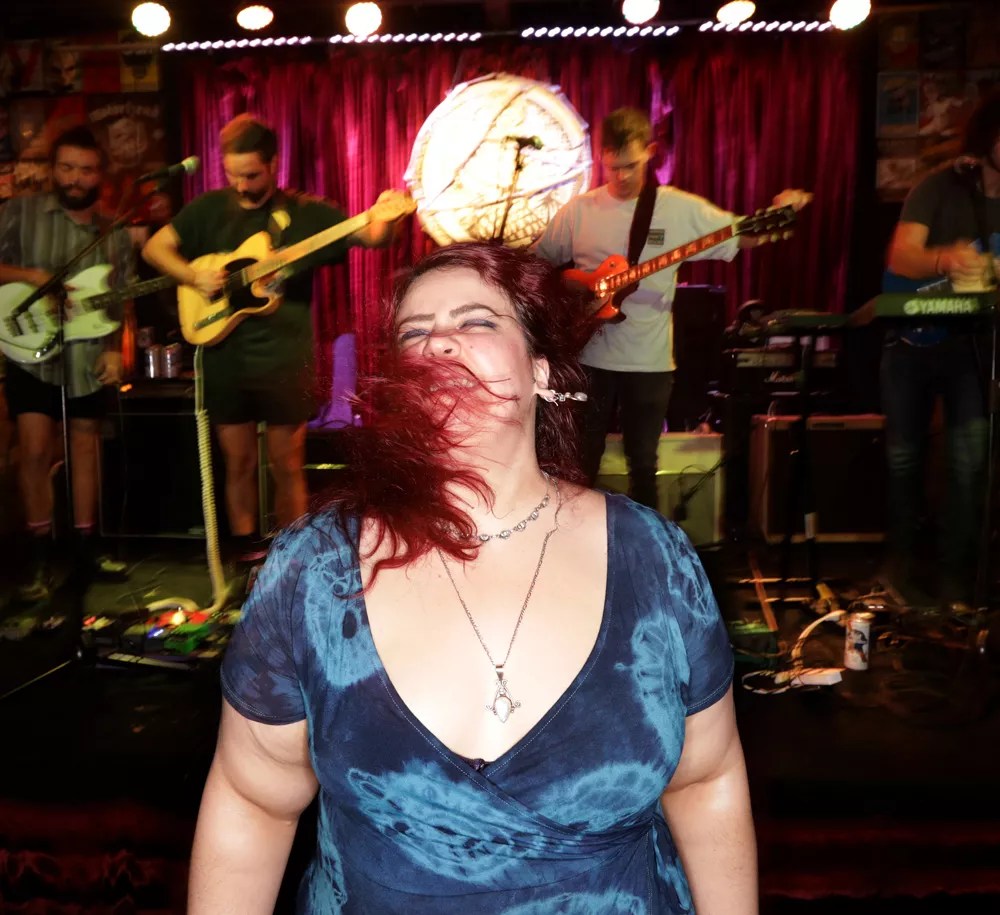
Musician Alicia “EV” Borman
Jason Janik
Musician Alicia Borman, better known as “EV,” didn’t always think Dallas’ experimental music scene is special. But this year, she took what she calls a “research interest” in the subject and started talking to the touring bands that visit Dallas. It wasn’t hard for her to take such a survey; Borman attends a local concert almost every night.
“One thing that’s really special about what’s happening in Dallas is we have this experimental scene that touches on every facet of experimental music,” Borman says. “Some other places, some other cities, from what I understand based on the touring bands that come through, may have a really great ambient noise scene, but that’s really all they do.”
Dallas has experimental jazz, ambient music, techno and electro, straight-up noise – and that’s just the tip of the iceberg of what you’ll hear if you attend a show at Outward Bound Mixtapes (Mondays at RBC) or Dallas Ambient Music Nights (at a different location each month). Experimental bands such as best new act nominee SRSQ and best hardcore act nominee Leech are also finding their way onto bills at more mainstream venues such as Armoury D.E., thanks to talent buyers such as King Camel’s Jeffrey Brown, who books Armoury.
“Almost every conceivable type of experimental music is being made here right now,” Borman says.
The musician, who moved to Dallas in 2003, also plays in two bands, Atom & EV and JustnLongorio. She recalls that around the time Outward Bound Mixtapes started, the Dallas music scene was coming out of a lull.
“The Dallas scene wasn’t as vibrant,” she says. “Not just the DIY spaces and experimental music – even the rock scene at the time was kind of starting up again in a way.”
The experimental scene, often found in house venues, is frequently in flux. Venues close, house parties get shut down or tenants move, and the music moves with it. This is often a good thing, Borman says, because the genre is well suited to constant rebirth.
“Actually, the Crown & Harp closing at the time that it did was really beneficial to the scene,” Borman says. “A lot of people were going there and putting on shows, but … bands were playing empty rooms, nobody’s really getting paid. [Its closing] made people have to be a little more creative.”
A few new spots that have emerged as experimental music venues in the last year are the Belmont Hotel, the Texas Theatre, Wild Detectives and Spinster Records. “Those [DIY] spaces are what is keeping this scene going,” Borman says.
As Dallas has grown, it has seemingly drifted away from certain genres. This year, the Latin and folk categories had the lowest numbers of unique nominations. Borman points out that local bands such as the Whiskey Folk Ramblers, at one time decidedly folk, have been ditching their upright basses for electric ones and moving toward a ’60s rock sound.
Borman attributes the decline in the popularity of folk to self-consciousness. “It’s not at the forefront of what Dallas seems to want at large, which is rock shows and cover bands and some touring acts,” Borman says. “I think that part of the reason is that we’re fighting to not be seen as this hillbilly haven, basically.”
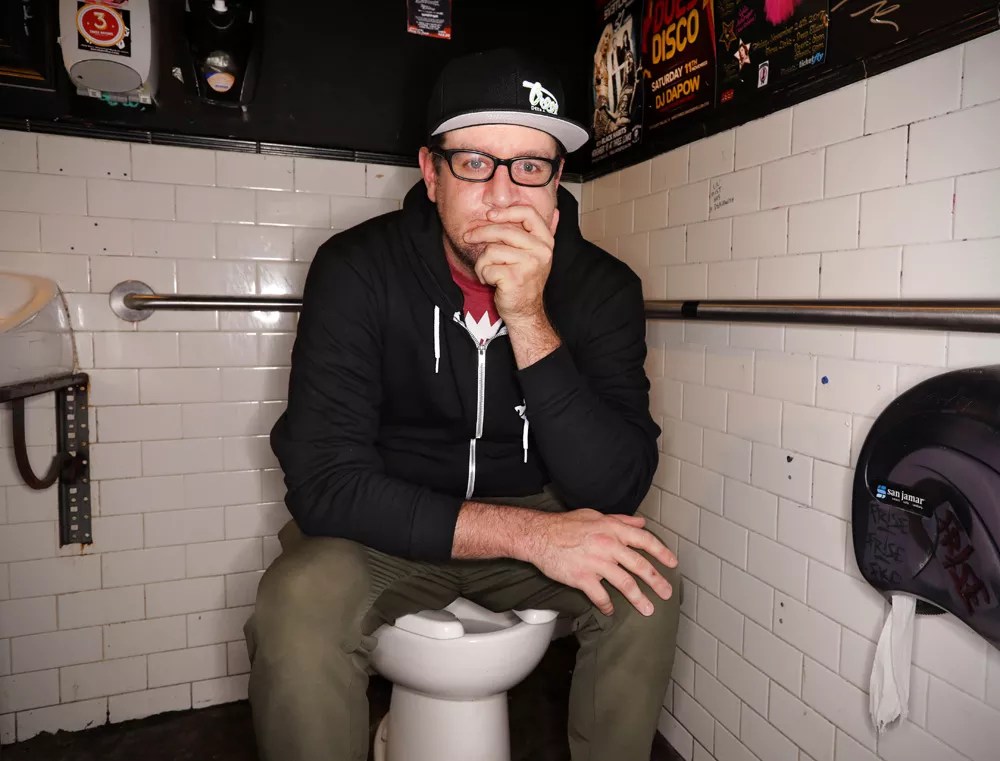
Bomb Factory, Trees and Canton Hall creative director Gavin Mulloy
Jason Janik
Gavin Mulloy, creative director at Bomb Factory, Trees and new venue Canton Hall, is getting ready for one of the biggest shows of the year when we check in on him. With LCD Soundsystem’s sold-out gig at Bomb Factory that night, he’s feeling particularly stressed.
“I just want to preface this by saying I’m coming off of 11 shows in 14 days with Bomb Factory and 14 at Trees,” he says. “So if my answers sound stupid, it’s because I am stupid right now.”
Mulloy is originally from Colorado, but he’s lived in the Dallas area since high school; he attended Carroll Senior High School in Southlake. He got into local music somewhat by accident. In the early ’90s, Mulloy and his friends went to Deep Ellum to hear a touring band, but they’d gotten the dates wrong and saw an all-local bill with Tripping Daisy, Toadies, Hagfish and Tabula Rasa. About 200 people were there, he recalls.
“We saw them, and then me and my friends just started coming down here every weekend,” he says. “I’ve been watching the Toadies for, shit, 25 years.”
Mulloy eventually went back to school for business and graphic design. After working for a few marketing firms, he landed a gig at the Granada Theater, and he’s been a creative director at Dallas music venues since. One of his favorite jobs is throwing Erykah Badu’s birthday party, which has been at the Bomb Factory each year since it opened. (In fact, it was the first event ever hosted there in February 2015.) A few key things have changed in the Dallas music scene since he attended that first Toadies show 25 years ago, Mulloy says.
For one, local shows don’t draw like they used to. Mulloy’s goal is to have a local band sell out Trees once a week, but recently he’s found that to be impossible. “Four or five years ago, there were a couple of local bands that could bring out 500 or 600 [people], and it doesn’t seem like that happens as much anymore,” he says.
The internet, not posters, is the way to promote shows now, and it can create a false sense of confidence, he says. Online buzz or support often doesn’t translate to attendance and sales.
“I think that’s what causes a lot of frustration among artists is like, ‘Man, my shit looks huge on the internet,'” Mulloy says. “It’s like, ‘Well, yeah, but you have to have the people who want to buy a ticket and come out and buy a T-shirt and buy a couple of drinks and keep the whole wheels in motion so that it can keep going on.'”
Mulloy also observes a lot more cooperation between venue operators than he was aware of in the ’90s. For example, if one promoter has an artist on the line, but the room is too big or small for the draw, the promoter will offer it to another venue that’s a better fit.
“It’s important to not just go, ‘Hey, this is my little area and I’m not going to play with anybody else,'” Mulloy says, “because the scene’s too small for that.”
Mulloy won’t have to make those phone calls too often anymore, though. With the addition of the midsized Canton Hall, which opened earlier this month in the old Deep Ellum Live space, his employers, Clint and Whitney Barlowe, own enough venues of different sizes that they can accommodate almost any performer or event. (Trees is the smallest venue; Bomb Factory is the largest.) This also allows them the flexibility to move to different venues depending on ticket sales.
“If someone comes in and sells Trees out real quick, maybe you can move it over [to Canton Hall],” Mulloy says. “It gives some more people a shot to go see a band or an artist they really want to see.”
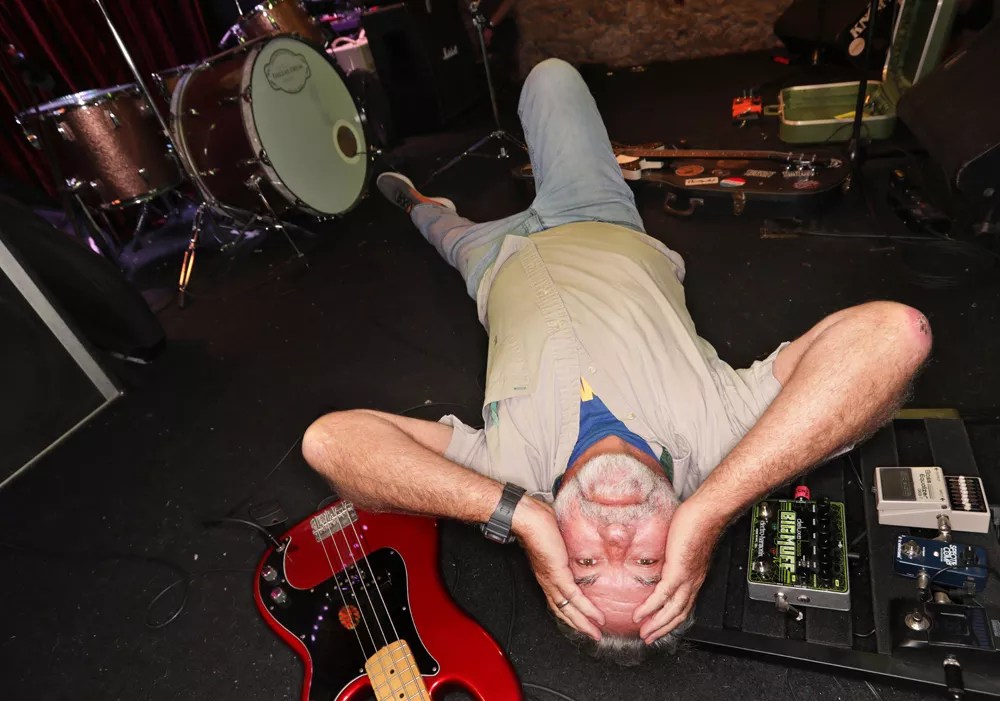
Music photographer Mike Brooks
Jason Janik
Photographer Mike Brooks has a different niche in the music ecosystem – as a chronicler. The photographer, who frequently shoots concerts for the Dallas Observer, experiences the music scene from both a personal and professional vantage. Brooks’ favorite venues to shoot at are “kind of the same” as they’ve always been, he says.
“The places I like to shoot are the places that have good music,” he says. For him, that means Bomb Factory, Trees, Club Dada, Three Links and the Kessler.
Work also calls Brooks to the American Airlines Center – where he photographed Ariana Grande and Arcade Fire concerts, among others this year – and he says his experience there has changed significantly in that time. Since May’s bombing at Grande’s concert in Manchester, England, which left 23 people dead, Brooks has found himself being questioned every time he shows up at AAC to take photos.
“The last two times I’ve been at the American Airlines Center – one I was just getting my cameras out of the car and testing to make everything work – but the security came up and asked what I was doing,” Brooks says. “The other time was at Arcade Fire when I was walking around taking fan photos, and all of a sudden, the guards pulled me over and said, ‘Hey, we need to talk to you.'”
One of the guards told Brooks that taking pictures of the building was prohibited. “The building’s on Google Maps, but I get the whole thing,” Brooks says. “In this business, we go out a lot, and you want a place that’s safe. I don’t want to be shot up by a terrorist.”
Brooks says he’s had the most problems at AAC this year, but he’s observed changes at other venues as well. There’s armed security at Cowboys Stadium – “You don’t feel like you’re in a third-world country, but every once in a while you’d notice some,” he says – and even the Bomb Factory now has metal detectors.
“It’s kind of a sign of the times that everybody’s taking security a little more seriously,” he says. “Nobody wants to be the next site of a massacre.”
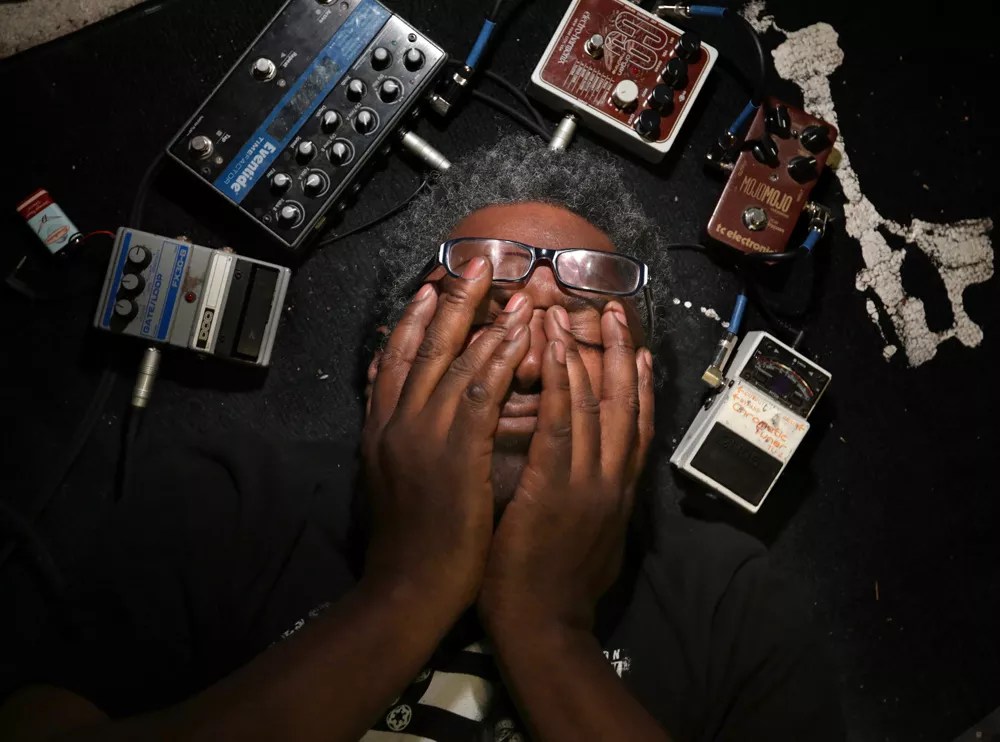
DJ and musician Wanz Dover
Jason Janik
DJ and musician Wanz Dover just returned from LA, where he played with resurrected Dallas ’90s hip-hop act MC 900 Ft. Jesus. The impassioned artist is a reliable source of practical critiques of Dallas music venues, often from the artist’s point of view. For example, as Deep Ellum has become busier, loading in and out on Elm and Main streets has become increasingly difficult for bands.
“Dada, Off the Record, Armory, everything on that little strip’s just [a] royal pain in the ass,” Dover says.
Dover sees big dividends in out-of-the-way venues such as It’ll Do in Old East Dallas. Brooke Humphries, a veteran of the 1990s New York club-kid scene, opened the club and books house music every Saturday. The venue attracts DJs from all over the world, such as SASH! and John Digweed, and Dover says they routinely tell him it’s the best venue they’ve ever played.
“They’re like, ‘Dude, this is like none of the VIP, none of the glittery bullshit,” he says. “This is like a dance club. This is like the real thing.'”
Humphries designed the club to reflect the warehouse parties she attended in the ’90s, with no VIP area and minimal seating. The focus is on the dance floor and sound system, which direct attention to the DJ. Despite the reputation It’ll Do has with DJs the world over, Dover says it still doesn’t get the local recognition it deserves.
“As far as electronic music and DJ culture, people not from Dallas know more about what’s going on in Dallas than people in Dallas.” – DJ and musician Wanz Dover
“As far as electronic music and DJ culture, people not from Dallas know more about what’s going on in Dallas than people in Dallas,” Dover says.
He believes part of the reason is that rock rules here. “They are the gatekeepers of the venues in Dallas, for the most part,” says Dover, who also plays in rock band the Black Dotz. When Dover opened for British DJ Nightmares on Wax in March, the show had 572 presales.
“At the same time, I’m being told by a different club in town that dance music doesn’t draw,” he says. “I’m like, OK. By the time I finish at midnight, there’s 600 people on the dance floor.”
Dover’s impressed by the investment Deep Ellum Art Co.’s owners made in sound. He saw dub pioneer Lee Perry there earlier this month, and because Perry’s music is all bass, it would have sounded particularly bad on a subpar sound system.
“It sounded just great,” Dover says. “If you’re a local band and you can get booked at Deep Ellum Art Co., that’s the best sound you’re gonna play on, probably.”
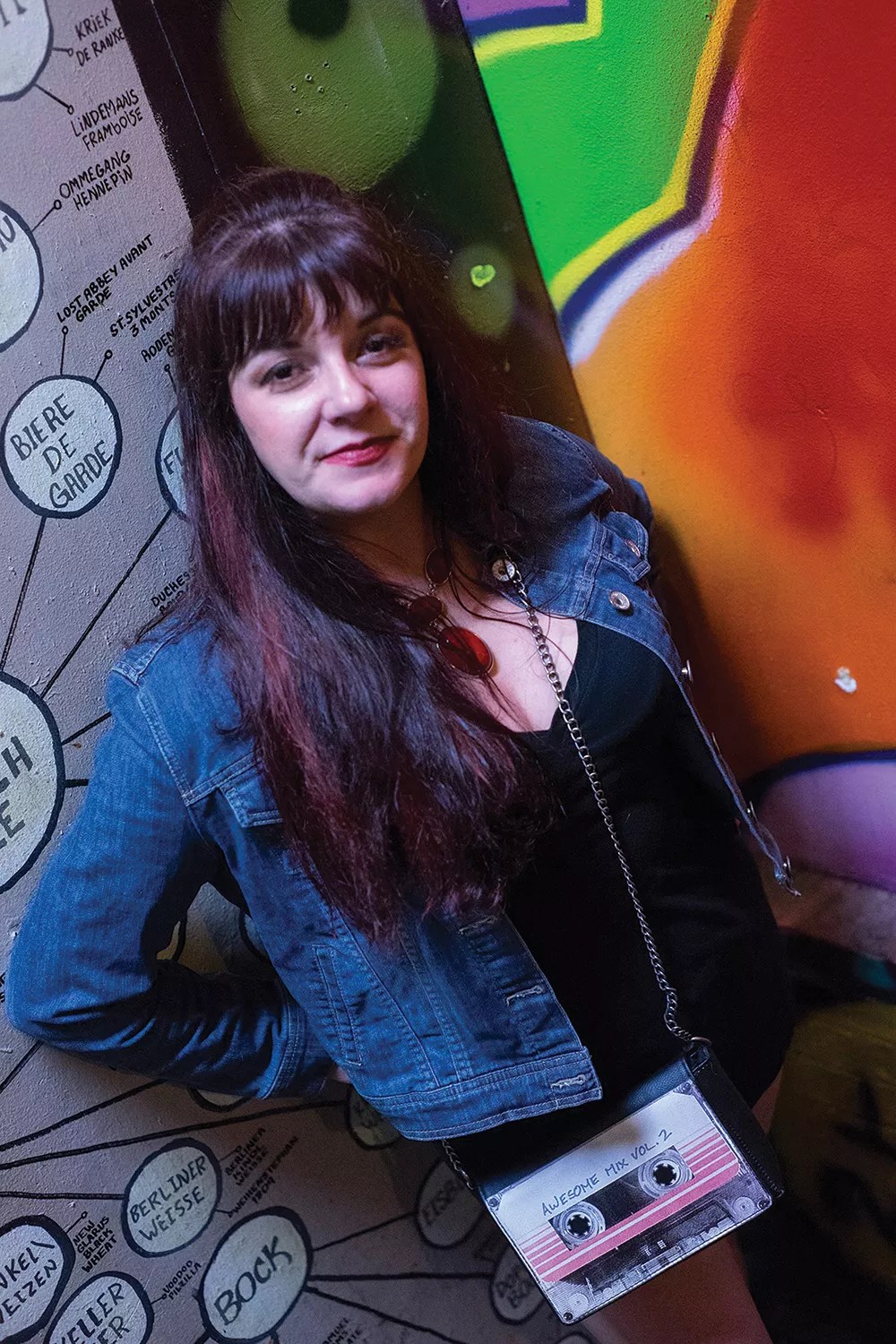
Fort Worth promoter Callie Dee
Kody
Callie Dee, a promoter who lives in Fort Worth, says it’s getting easier to book hip-hop now that it’s the norm to mix genres on a bill. “It’s definitely a lot easier to book hip-hop than it was, you know, let’s say three or four years ago,” she says.
She says Moody Fuqua, nominated for best talent buyer, is particularly good at bringing hip-hop acts such as 88 Killa into rock bills at Club Dada. Dee says 88 Killa is often “the only hip-hop person on the bill.” Mixed-genre bills are more likely to attract crowds – there’s something for everyone, and they create better opportunities to attract new fans.
But while larger venues such as 500-capacity Club Dada, Trees, Bomb Factory, Gas Monkey and House of Blues are doing a good job of booking hip-hop, Dee says there’s a lack of venues where smaller rappers can build a following.
“Now what we are kind of lacking, though, is the smaller venue outlets. So stuff like open mics and all local showcases and stuff that might not draw a big crowd,” she says. “We just don’t have the … small groundwork places anymore.”
Dee knows a lot about open mics as a platform. She runs Master of the Mic, an annual American Idol-style competition that identifies the best rapper in DFW through a series of open-mic elimination rounds. Past winners include Alsace Carcione and J. Catalyst.
However, open mics can be tricky, Dee says, because the locations are often coffee shops or other nontraditional music venues, and they’re ill equipped. “You’re gonna have sound system issues,” she says. “You’re gonna have people rapping over their lyrics and stuff like that.”
The hip-hop scene took a hit when one small venue known to book hip-hop, Crown & Harp, closed in May. “Now that it’s closed, all the other kinda smaller, under 250 and below cap rooms are too expensive to rent for something like that,” Dee says.
For a time, it looked like RBC, which reopened last winter, might fit the bill, but Dee says “their prices have kind of gone through the roof.” In recent months, more well-known touring acts such as Yelle and Chicano Batman have been booked at the Commerce Street venue. Dee attributes this to the venue’s new booking manager.
“Oh yeah, I mean, they’re asking like $500 guarantees,” she says.
Despite the shortage of smaller hip-hop venues, Dee believes Dallas’ hip-hop scene is thriving compared to Fort Worth’s, which she says “has kinda crashed and burned in the last couple years.” She wishes more people were proud of the area’s music scene and is sometimes frustrated when musicians criticize Dallas as they move away to “make it.” This year, -topic and Dezi5 are just two of the acts who moved away to greener pastures, in Oakland and New York City, respectively.
“They say stuff like, ‘Oh, well you have to break out of Dallas in order to make it.’ Bullshit – you gotta get out of Dallas to make it in anything to do with entertaining. But not because it’s Dallas,” Dee says. “It’s because you need to get out. You know? People who live in New York have to get out of New York to make it, too.”